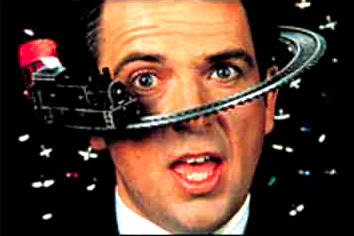What do you think?
Rate this book


128 pages, Paperback
First published January 1, 1958
Have you ever asked yourself how many operations the fabric of history can stand before its all stitches, whether too much Change won’t one day wear out the past. And the present and the future too, the whole bleeding business...Every operation leaves reality a bit cruder, a bit uglier, a bit more makeshift, and a whole lot less rich in those details and feelings that are our heritage, like the crude penciled sketch on canvas when you have stripped off the paint?Sure, what Bruce says has a particular meaning about the “The Change War.” But it also has something tell us about any kind other kind of war too.





"A superior adventure-mystery about the strangely assorted crew of men and women, snatched out of their lives by emissaries from the far future, who fight and scheme to change the structure of time and history." -P. Schuyler Miller, Analog.